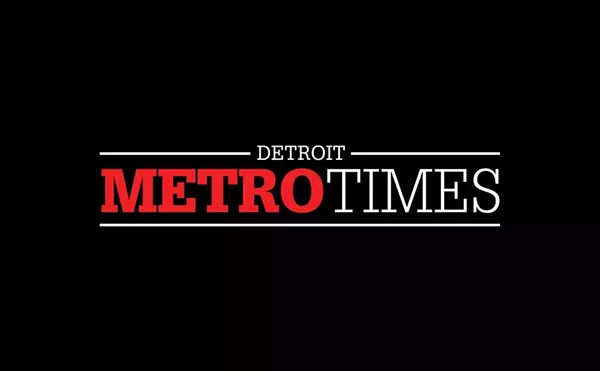Game-changers ahead
With labor challenged, where will tomorrow's radical awakening come from?

Audio By Carbonatix
[
{
"name": "GPT - Leaderboard - Inline - Content",
"component": "35519556",
"insertPoint": "5th",
"startingPoint": "3",
"requiredCountToDisplay": "3",
"maxInsertions": 100,
"adList": [
{
"adPreset": "LeaderboardInline"
}
]
}
]
As I wandered around the house setting my clocks forward this past weekend, I contemplated Republican-led efforts to turn the clock back on collective bargaining rights across the nation.
The big deal that most folks have been focused on is the protest in Madison, Wis., where as many as 100,000 union supporters reacted to Gov. Scott Walker's signing of a bill that stripped almost all collective bargaining rights from state workers. Walker claims that it's necessary to balance the state budget, although the budget seemed to be balanced before Walker cut corporate taxes. State worker unions agreed to all the economic rollbacks Walker sought, but the governor insisted that removing collective bargaining rights was key to his budget needs. In the final maneuver, after Democratic legislators fled the state to keep the fiscal bill from coming to a vote, Republicans removed the fiscal provisions of the bill in order to be able to vote on the law without needing the Democrats to be present.
In other words, Walker and his right wing co-conspirators removed the legislative fig leaf to get what they really wanted: union-busting legislation.
It seems that a conservative Republican cabal, with ideological and financial leadership from the billionaire Koch brothers and others, is making an effort to stamp out union power. Public sector workers have the highest concentration of union representation today; so if you can crush public unions, you deal a crippling blow to the union movement and its ability to support the political opposition. The Midwest, traditionally an area of union strength, is the focus of that offensive. In Ohio, the SB 5 law that strips most collective bargaining rights from public workers recently passed the Senate by a one-vote margin, though it has yet to be passed by the state House. In Indiana, where Gov. Mitch Daniels stripped collective bargaining rights from state workers by executive order in 2005, some 20,000 pro-union activists rallied last week in opposition to HB 1216, which would exempt most public building projects from being subject to construction wage rules requiring that all workers on site be paid the locally prevailing wage and benefits, and prevent companies from having to sign project labor agreements that guarantee a certain percentage of union jobs.
In Michigan, Gov. Rick Snyder hasn't taken on unions head-on, but many are wary of his Emergency Financial Managers legislation, which would grant new wide-ranging powers to EFMs, including the ability to dissolve local governments and school districts, and to void contracts. The law has been passed and awaits the nerd governor's signature. The state has begun training 175 EFMs in anticipation of Snyder's draconian budget measures taking effect. As municipalities and school systems buckle under the state cutbacks, he'll be able to deploy EFMs across the state. Anti-EFM activists held protests in several Michigan cities on Tuesday.
"I assume Rick Snyder is Scott Walker with a worse haircut. There isn't any significant difference between Walker and Snyder policies. It all comes from the Koch brothers," says Frank Joyce, a political activist and writer who formerly headed UAW public relations. "Snyder wants to distinguish himself with some of his taxes, shifting the tax burden from business to retirees. And the EFM is a thinly disguised union-busting scheme; anybody pretending to be a neutral observer looking at the Detroit Public Schools as an example of how the EFM works would not be expanding the program. None of this is about fixing any real problems, this is about consolidating power.
"This war on unions and war on working people has been quite explicitly waged for 30 years. The working people of the United States have not had a raise in 30 years. Incomes are stagnant or in decline despite the fact that productivity has increased dramatically. A single breadwinner in most houses then was bringing in more real money than multiple breadwinners do now. Every household is up to their eyeballs in personal debt. The significant thing about Madison, Lansing and some other places is that now there is some pushback, resistance. People are saying enough is enough, and that's pretty significant. This is way bigger than Scott Walker."
But given the steady erosion of union memberships over the decades and the current economic atmosphere, is it too little too late? Or is that even the right question? Joyce and others, including political philosopher and activist Grace Boggs, who I'll be talking to for my next column, would agree that we are entering a new economic age where the questions and answers on the right and left are changing, and the struggles we see today are more about what the next economic order will be. Boggs' new book, The Next American Revolution, establishes that point, and moves forward from there to ask how progressive forces are organizing themselves in this new, technologically shrunken world.
One possible outcome is that "This is the beginning of a much more radical awakening of consciousness about the building of power," says Joyce, who hosts an hour-long Sunday afternoon segment as part of Sirius radio's weekly Land of Hopes and Dreams program. "Things are much different, and the issues we're facing call for a radical re-examination of problems and what the solutions are. It's not all that clear what direction we'll go.
"We're in a systemic breakdown now; capitalism as we know it is coming to the end of the arc of its growth development and legitimacy. ... There are shifting demographics and attitudes about marriage and family, even mental health. These are game-changing evolutions that we have seen before in human history; get used to the simultaneous crises. Libya, Japan, Madison — these are big, unwieldy events. It's going be like this for a while. There are going to be lots of surprises and manifestations.
"We are in kind of a fasten-your-seatbelts mode here. It's easy to say this is about a particular governor who maybe overreached, but there's nothing very different from what Scott Walker is trying to do in Wisconsin than what is happening in several other places."
The short-term fallout in Wisconsin is that public opinion has swung against Walker, and several legislators on both sides of the aisle face recall efforts — Wisconsin law says that an elected official must be in office for at least one year before he or she can be recalled, so Walker is safe until Jan. 12, 2012. An upcoming state Supreme Court election there has taken on a higher profile because some of this stuff will probably be litigated and appealed to the highest court. Whoever wins this election will tip the court majority to their party.
In the long term, I'm basically in agreement with Joyce's analysis of the situation. So I expect things to continue being pretty interesting around here. As the world evolves — and it is a worldwide order we are contemplating here — opposing forces are trying to shape the outcome. It's going to take numerous efforts as powerful as the protests in Madison to sway the tide in a direction that benefits ordinary working people.






